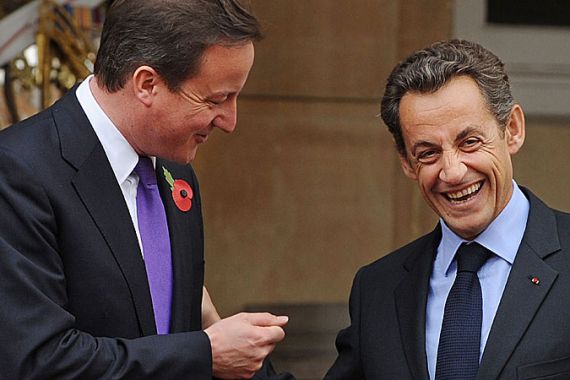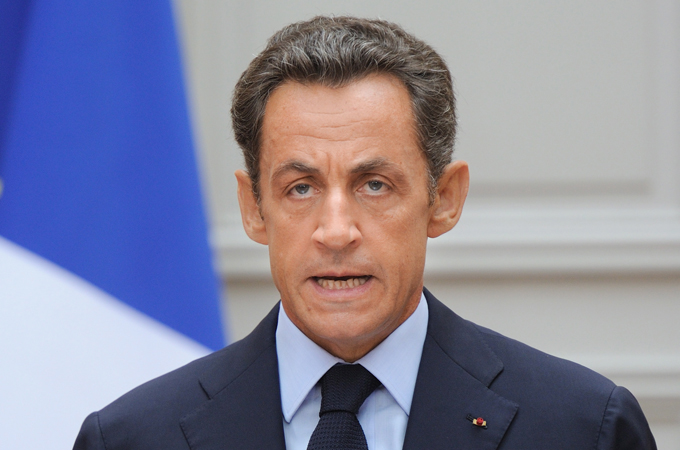UK and France sign defence treaties
Two nations agree to “unprecedented” military co-operation, including the sharing of nuclear warhead testing facilities.

 |
| The French presidency says the joint deal will ensure the two countries’ nuclear weapons are safe [EPA] |
Britain and France have signed two treaties that will usher in a new era of “unprecedented” co-operation on defence between the two nations, including joint testing on nuclear warheads.
David Cameron, the British prime minister, and Nicolas Sarkozy, the French president, said that the agreements, signed in London on Tuesday, would allow both countries to remain global military players despite tough spending cuts.
“Today we open a new chapter in a long history of co-operation on defence and security between Britain and France,” Cameron said.
He added that last week’s foiled parcel bomb plot on air cargo destined for the US had highlighted the importance of “closer co-operation with our allies across the board”.
Sarkozy, speaking through a translator, said: “This is a decision which is unprecedented and it shows a level of trust and confidence between our two nations that is unequaled in history.”
Old rivals
The defence treaty will see the creation of a joint military force, plus the sharing of resources including aircraft carriers
The nuclear treaty will see the two countries sharing a nuclear simulation facility built at Valduc in eastern France.
The French presidency said the facility, expected to start operating in 2012, will enable British and French scientists to model the performances of nuclear materials to ensure the “viability, safety and security in the long term” of their nuclear arsenals.
The Valduc laboratory will work with a French-British research centre based in Aldermaston in southern England.
The Nato allies, western Europe’s biggest defence spenders and only nuclear powers, have a centuries-old history of military rivalry and, more recently, have differed sharply over issues such as the Iraq war.
However, they already work alongside each other in Nato operations and 12 years ago Tony Blair, the British premier, and Jacques Chirac, the French president, hailed their intention to co-operate on defence issues.
The countries new partnership is chiefly driven by the desire to maintain cutting-edge military capabilities while at the same time reining in defence spending in the face of big budget deficits.
Cameron told a cabinet meeting that the nuclear testing plan alone would save “hundreds of millions of pounds”, but officials have declined from giving estimates on how much overall the treaties will save from budgets.
Last month, Britain announced an eight per cent cut to its annual $59bn defence budget over four years and confirmed that 17,000 troops, a fleet of fighter jets and an ageing aircraft carrier would all be lost to cuts.